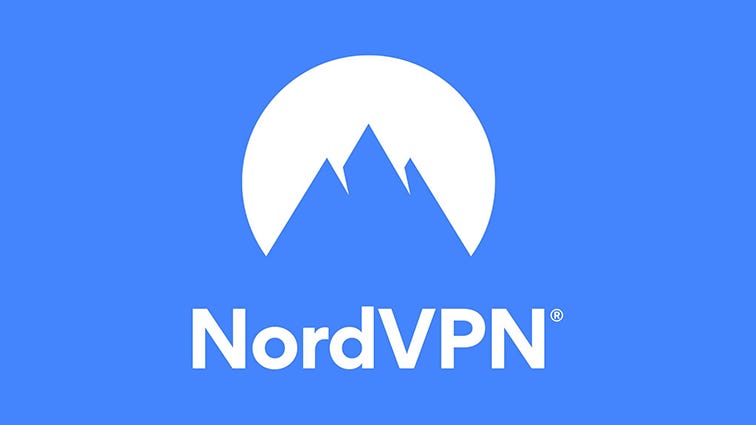While NordVPN has lived on this list for a long time, we moved it to the penalty box in October 2019 to re-evaluate our recommendation after a report emerged that one of its rented servers was accessed without authorization in 2018. Nord’s actions following the discovery included — eventually — multiple security audits, a bug bounty program and heavier investments in VPN server security.
NordVPN is one of the most recognized brands in the VPN field. It offers a generous simultaneous connection count, with six simultaneous connections through its network, where nearly all other providers offer five or fewer. NordVPN also offers a dedicated IP option, a kill-switch feature and the ability to VPN into Tor. We detected no privacy leaks during our tests.
A commercial virtual private network is technology that allows you to create a private connection over a less private network by creating an encrypted tunnel between your computer and the internet. You can install a VPN just like you would any other app or program on your smartphone or computer. A VPN can let you get around censorship in your country or access georestricted media content from another country — and prevents your internet service provider from being able to intrude on your privacy by snooping on your web browsing. VPNs do this by allowing you to appear as though you’re connecting from a different location or country.
Editors’ note, Feb. 9, 2022: The VPN industry has undergone significant change in the past few months, with all three of our top VPN choices announcing major changes in corporate ownership. In December, ExpressVPN announced that it had officially joined Kape Technologies, a company that already owns several other VPNs and has raised privacy concerns in the past. In February, NordVPN and Surfshark announced the two companies were merging, though they’ll continue to operate autonomously. We’re in the process of re-evaluating all of our top picks in light of these changes. We will update our reviews and, if necessary, our rankings to account for this new competitive landscape.

 n ","topic":"","ttag":"","searchDim":"article-body|listicle|image","variant":"article-body|listicle|image","viewguid":"","event":"listicle|image|1","correlationId":"","_destCat":"https://www.xvinlink.com/?a_fid=cnetvpn&source=CNET&aff_sub=[subid_value]&aff_sub2=bestchromevpn","productName":"ExpressVPN","formatType":"IMAGE","location":"LIST","position":1,"sku":"CNETExpressVPN","dwLinkTag":"article-body|listicle|image","selector":"#article-body #listicle-370d849e-0a99-4079-b98e-cc20f83c4333 .itemImage"}}” rel=”noopener nofollow” target=”_blank”>
n ","topic":"","ttag":"","searchDim":"article-body|listicle|image","variant":"article-body|listicle|image","viewguid":"","event":"listicle|image|1","correlationId":"","_destCat":"https://www.xvinlink.com/?a_fid=cnetvpn&source=CNET&aff_sub=[subid_value]&aff_sub2=bestchromevpn","productName":"ExpressVPN","formatType":"IMAGE","location":"LIST","position":1,"sku":"CNETExpressVPN","dwLinkTag":"article-body|listicle|image","selector":"#article-body #listicle-370d849e-0a99-4079-b98e-cc20f83c4333 .itemImage"}}” rel=”noopener nofollow” target=”_blank”>

ExpressVPN
Read our NordVPN review.
The VPN provider has been in business since 2009, and ExpressVPN has a substantial network of fast VPN servers spread across 94 countries. Its best plan is priced at less than a month for an annual package, which includes three months free.
Like the rest of the top five VPN services we’ve reviewed, ExpressVPN offers a useful kill-switch feature that prevents network data from leaking outside of its secure VPN tunnel in the event the VPN connection fails. Unlike the others, though, ExpressVPN gained points from us for its support of Bitcoin as a payment method — something not all of our favorites offer, but which adds an additional layer of privacy during checkout.
Read our ExpressVPN review.

 n ","topic":"","ttag":"","searchDim":"article-body|listicle|image","variant":"article-body|listicle|image","viewguid":"","event":"listicle|image|2","correlationId":"","_destCat":"https://get.surfshark.net/aff_c?offer_id=50&aff_id=1511&source=CNET&aff_sub=[subid_value]&aff_sub2=bestchromevpn","productName":"Surfshark VPN","formatType":"IMAGE","location":"LIST","position":2,"sku":"CNETSurfshark VPN","dwLinkTag":"article-body|listicle|image","selector":"#article-body #listicle-ce8fef6c-fcfc-46d0-b86a-55e978c69b1c .itemImage"}}” rel=”noopener nofollow” target=”_blank”>
n ","topic":"","ttag":"","searchDim":"article-body|listicle|image","variant":"article-body|listicle|image","viewguid":"","event":"listicle|image|2","correlationId":"","_destCat":"https://get.surfshark.net/aff_c?offer_id=50&aff_id=1511&source=CNET&aff_sub=[subid_value]&aff_sub2=bestchromevpn","productName":"Surfshark VPN","formatType":"IMAGE","location":"LIST","position":2,"sku":"CNETSurfshark VPN","dwLinkTag":"article-body|listicle|image","selector":"#article-body #listicle-ce8fef6c-fcfc-46d0-b86a-55e978c69b1c .itemImage"}}” rel=”noopener nofollow” target=”_blank”>

Surfshark
Unlike many of the other VPN providers, Surfshark doesn’t offer a one-year plan. Its best offer right now is .30 a month for its two-year plan (you pay about up front). A six-month plan is .49 a month (about up front), and month-by-month plans are a month. Definitely take advantage of its generous 30-day trial to decide if you like this service and Chrome VPN extension (and if you choose the two-year plan, maybe set a reminder in 23 months to see if you can talk the company into a continued discount rate).
While we’d have preferred it if Nord had self-disclosed the issue much earlier, the fact that the breach was limited in nature and involved no user-identifying information served to further verify that NordVPN keeps no logs of user activity. As a result, Nord remains on this list as a recommended VPN service.
Surfshark also offers three special modes designed for those who want to get around restrictions and more carefully hide their online footsteps. Camouflage Mode masks your VPN activity so your ISP doesn’t know you’re using a VPN. Multihop jumps your connection through multiple countries to hide your trail. Finally, NoBorders Mode “allows [you] to successfully use Surfshark in restrictive regions.” Just be careful. Doing any of these three things could be illegal in your country and could result in severe penalties. During our testing, we didn’t see a single IP address or DNS leak, and had no trouble accessing Netflix.
In our most recent speed tests, NordVPN’s performance was on par with many of its competitors, reducing our speeds by 53% on average (which is slower than the 32% loss measured in previous speed tests). We found NordVPN’s speeds were reliably fast. There were never any sudden dips or service interruptions, and where we expected the VPN to underperform, it still proved itself up to the task.
What’s the best VPN for Chrome right now?
ExpressVPN tells us its network is powered by TrustedServer technology, which ExpressVPN built to ensure that there are never any logs of users’ online activities. In the privacy world, ExpressVPN has a strong track record, having experienced a VPN server seizure by authorities which proved its zero-log policy true at the time. We also like the quality of the VPN’s setup guides and the detailed information in its FAQ. And it offers a full-featured dedicated Chrome extension.

 n ","topic":"","ttag":"","searchDim":"article-body|listicle|image","variant":"article-body|listicle|image","viewguid":"","event":"listicle|image|3","correlationId":"","_destCat":"https://go.nordvpn.net/aff_c?offer_id=15&aff_id=307&source=CNET&aff_sub=[subid_value]&aff_sub2=bestchromevpn","productName":"NordVPN","formatType":"IMAGE","location":"LIST","position":3,"sku":"CNETNordVPN","dwLinkTag":"article-body|listicle|image","selector":"#article-body #listicle-77459259-2c88-420c-9f40-7187291a9a6e .itemImage"}}” rel=”noopener nofollow” target=”_blank”>
n ","topic":"","ttag":"","searchDim":"article-body|listicle|image","variant":"article-body|listicle|image","viewguid":"","event":"listicle|image|3","correlationId":"","_destCat":"https://go.nordvpn.net/aff_c?offer_id=15&aff_id=307&source=CNET&aff_sub=[subid_value]&aff_sub2=bestchromevpn","productName":"NordVPN","formatType":"IMAGE","location":"LIST","position":3,"sku":"CNETNordVPN","dwLinkTag":"article-body|listicle|image","selector":"#article-body #listicle-77459259-2c88-420c-9f40-7187291a9a6e .itemImage"}}” rel=”noopener nofollow” target=”_blank”>

NordVPN
Read our Surfshark VPN review.
Below, you’ll find our top recommendations for the best VPN for Chrome, ranked in order of their overall performance on speed tests, security strength, and value for your money. You can also check out our picks for the best mobile VP, the best cheap VPN and the fastest VPN. And here’s why we strongly recommend you avoid using a free VPN and instead choose a tried-and-true paid VPN.
The company’s two-year VPN subscription plan costs .29 a month ( billed at once). That price is lower than most contenders, but creeps up for the one-year plan (.99 a month or total) and the monthly plan (.99 a month). But it does have a full 30-day refund policy.
We tested and ranked the three leading VPN providers below for general browser compatibility, along with connection speeds and any potential security issues that might arise. Not only did they pass with flying colors, but each of these VPN services also offers a Chrome VPN extension that can be installed directly in your browser if you want to try using a lighter version of the VPN client in order to lose less speed.
Chrome VPN FAQs
- ExpressVPN received a CNET Editors’ Choice Award for best overall VPN. We evaluate VPNs based on their overall performance in three main categories: speed, security and price. Express isn’t the cheapest, but it’s among the fastest and, so far, is the most secure. (Note that we’re currently re-evaluating ExpressVPN based on the news mentioned above.)
- Surfshark, with its lower price, is a close second among our picks, thanks to its impressive performance and unlimited devices.
- NordVPN, our third choice, is a die-hard heavy hitter. It costs more than Surfshark but less than Express, has an enormous network that’s constantly getting faster and more secure and is easily the most reliable service we’ve tested.
What is a VPN?
4:28
Watch this: Which VPN should you pick?
Looking for a VPN, or virtual private network, that works seamlessly with Google Chrome? I have good news: Thanks to Google Chrome’s dominance as the most popular internet browser in the world, practically every VPN provider out there makes certain their service provides maximum compatibility with Chrome. So if that’s your browser of choice, you’re in luck. All the top recommendations on our main list of the best VPN services also have been hands-on tested for use with Chrome.
Surfshark received generally high marks when its Chrome extension was audited for privacy by German security firm Cure 53 (PDF link of full report) — though that audit was commissioned by Surfshark.
While its speeds consistently compete with heavy-hitting competitors, our 2020 speed tests saw ExpressVPN produce a 52% overall loss of our normal internet speeds, representing a significant slowdown compared with its 2019 score of 2% speed loss.






